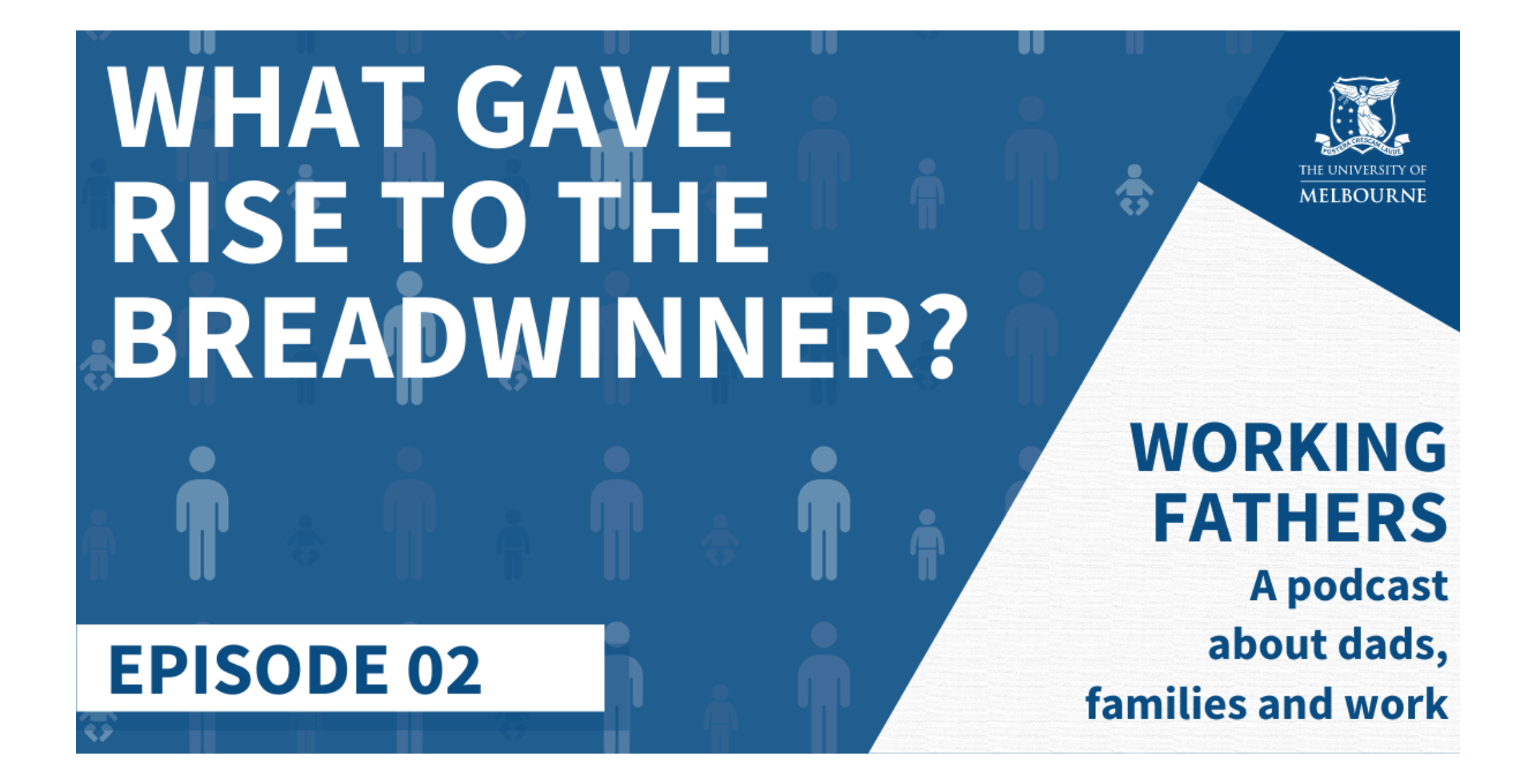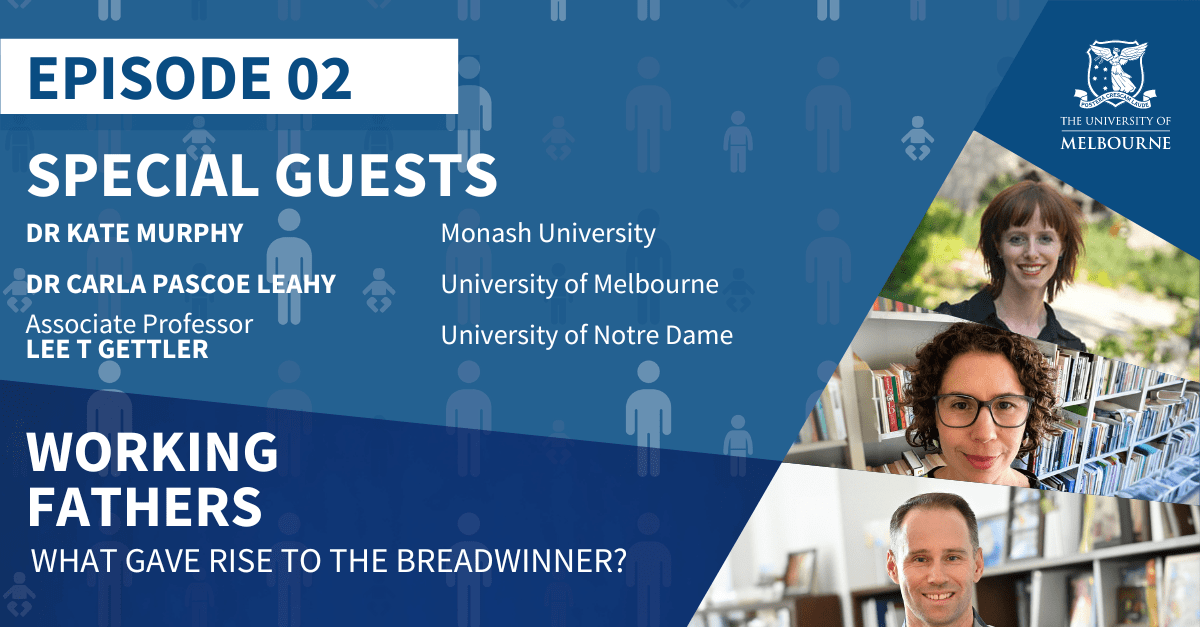
Working Fathers: Episode 2
The family as an institution has changed significantly across time and place. How people divide labour within and beyond the family unit has been in flux throughout human history. The current model of fatherhood in many Western nations, including Australia, is a modified version of what we usually call the breadwinner model, where one parent is designated the primary earner and the other the primary carer. But where did this model of the family come from? And why is it so entrenched? Despite rapid gains in social and gender equality throughout the twentieth, and into the twenty-first centuries, this family model has stuck around. In this episode, we discover what we can learn from the history of fatherhood. How did we get to where we are today? And where exactly is that? We’ll dive into the recipe of complex sociological, cultural, political, and economic forces shaping fatherhood, and the historical notion of the male breadwinner, and consider where policy might fit in.

Our guests in this episode are Dr Kate Murphy, Dr Carla Pascoe Leahy and Associate Professor Lee Gettler.
Dr Kate Murphy, Monash University
Kate is a Senior Lecturer in Contemporary History and teaches History and International Studies. Kate has special interests in the history of the family and postwar social movements, and is currently researching the history of fatherhood in twentieth century Australia as part of the Australian Research Council funded research project Fatherhood: An Australian History 1919–2019, with team members Mike Roper (Essex University), John Murphy (University of Melbourne) and Monash colleagues Alistair Thomson, Johnny Bell and Jill Barnard.
See more at Kate Murphy’s Monash University Profile
Explore more of Kate’s work:
- Kate Murphy & Alistair Thomson, We Studied 100 Years of Australian Fatherhood (The Conversation)
- Johnny Bell & Kate Murphy, The Royal Commission on Human Relationships and Australian Masculinity in the 1970s, Gender & History (July 2022): 1–20 (Open Access)
Dr Carla Pascoe Leahy, University of Melbourne
Carla Pascoe Leahy is an Honorary Fellow at the University of Melbourne, Lecturer in Family History at the University of Tasmania, Joint Editor of Studies in Oral History journal, an Associate of the Contemporary Histories Research Group and an Honorary Associate at Museums Victoria.
Twitter: @C_PascoeLeahy
Explore more of Carla’s work:
- Carla. Pascoe Leahy, Paid Work and Care Work: Policy Shifts and Maternal Experiences Since the 1970s, Australian Policy History Conference, Deakin University, 12-14 June 2019, broadcast on ABC Radio Big Ideas.
- Carla Pascoe Leahy, Mothers Explain How they Navigated Work and Childcare, From the 1970s to Today, The Conversation, 27 May 2019.
Associate Professor Lee T Gettler, University of Notre Dame
Dr Gettler is the Director of the Hormones, Health, and Human Behavior Laboratory at Notre Dame and a faculty affiliate of the Eck Institute for Global Health. Much of his early research focused on how men’s hormone physiology responds to major life transitions, such as marriage and fatherhood, and how men’s hormones relate to their behaviors as parents and partners. Working with collaborators at multiple global sites, he has expanded his focus to family systems and well being, including the psychobiology of motherhood and fatherhood, parents’ physical and mental health, and child growth, development, and physiology. Presently, Dr Gettler works on research projects related to these interests in the United States, the Philippines and the Republic of Congo.
Twitter: @leegettler
Explore more of Lee’s work:
-
Evidence for an Adolescent Sensitive Period to Family Experiences Influencing Adult Male Testosterone Production, PASB 119.23 (2022). DOI: 10.1073/pnas.2202874119
- Valchy Miegakanda & Adam H Boyette. Sharing and Caring: Testosterone, Fathering, and Generosity Among BaYaka Foragers of the Congo Basin’ Scientific Reports 10, 15422 (2020). DOI: 10.1038/s41598-020-70958-3
The transcript for Episode 2, including links to articles and reports, can be found here.